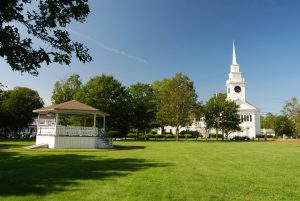Do you remember climbing trees as a kid? The big maple in the backyard, the tall oak in the far corner of the corn field, the quiet pine standing as a second steeple next to the church; each offering a new world to explore. It could sometimes be a little scary, was often exciting, but always a lot of fun. As we scaled the trunk, hand over hand, foot in notch; we’d soon find ourselves having achieved a dangerous height. Should we misstep or lose our grip now, our fall could be deadly. Nearer the top of the tree and at the end of our climb, we began testing the limb we thought of stepping out on. Before we put all our weight on a branch, we inspected it the best we could.

For those in the Christian faith, climbing the old, lovely tree planted by the water has us also ascending to some fearful heights. Not every branch we’re asked to believe in seems as sturdy as we’d like. One limb we’re particularly shy about putting all our weight on is the promise of God’s healing power meeting an immediate need in our lives. As we examine this belief, we discover that the limb comes off the trunk and is rooted, is alive with foliage and fruit, and looks strong enough. But just how strong and full of life is it? Can it handle the load of the things burdening my life? We shouldn’t live out our faith bear-hugging the trunk; but we shouldn’t wager our peace by taking fliers on the unfounded either. To help us think through this struggle, Andrew Wilson has written a wonderful article for an old issue of Christianity Today. In God Always Heals we learn a helpful perspective from a theological Tarzan. It should offer us a good hand-up for this Sunday’s climb. See you then!

 2 Thessalonians 2:1-12
2 Thessalonians 2:1-12
 Proverbs 31:1-9
Proverbs 31:1-9

